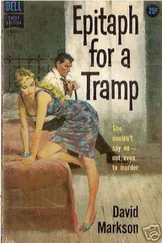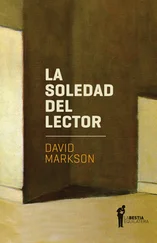Any number of habits died hard, that way. For some years I continued to find myself locking doors, similarly.
Well, and in London. Frequently taking the trouble to drive on the British side of the road.
After his grief, Achilles got even by slaying Hector, although Hector ran and ran.
I was about to add that this was the sort of thing men used to do. But after her own grief Clytemnestra killed Agamemnon.
Needing some assistance. But nonetheless.
Something tells me, obliquely, that that may have been one of the notions I had, for my canvas. Agamemnon at his bath, ensnared in that net and being stabbed through it.
Heaven only knows why anybody could have wished for such a bloody subject, however.
As a matter of fact whom I really may have thought to paint was Helen. At one of the burned-out boats along the strand, when the siege was finally ended, being kept prisoner.
But with that splendid dignity, even so.
To tell the truth it was actually just below the central staircase in the Metropolitan, where I set that canvas up. Under those high skylights where my bullet holes were.
Where I had situated my bed was on one of the balconies, overlooking that area.
The bed itself I had taken from one of the reconstructed period rooms, I believe, possibly American Colonial.
What I had done about that chimney I had constructed was to wire it to the same balconies, so that it would not list.
Though I was still making use of all sorts of devices, in those days. And so had electric heaters also.
Well, and innumerable lights, particularly where the canvas was.
A nine-foot brilliantly illuminated Electra, I might have painted, had I thought about it.
I did not think about it until this immediate instant.
Poor Electra. To wish to murder one's own mother.
Well, all of those people. Wrist deep in it, the lot of them, when one comes down to that.
Irene Papas would have been an effective Electra, however.
In fact she was an effective Helen, in The Trojan Women, by Euripides.
Perhaps I have not indicated that I watched a certain few films while I still possessed devices, also.
Irene Papas and Katharine Hepburn in The Trojan Women was one. Maria Callas in Medea was another.
My mother did have false teeth, I now remember.
Well, and in that glass beside her bed, those final weeks in the hospital.
Oh, dear.
Though I have a vague recollection that the projector I brought into the museum stopped functioning after I had used it no more than three or four times, and that I did not trouble to replace it.
When I was still at my loft, in the beginning, I brought in at least thirty portable radios, and tuned each one to a different number on the dial.
Actually those worked by batteries, not electricity.
Obviously that was how they worked, since I doubt that I would have solved how a generator operated, that early on.
My aunt Esther died of cancer, as well. Though Esther was my father's sister, actually.
Here, at least, there is always a sound of the sea.
And right at this moment a strand of tape at a broken window in the room next to this one is making scratching sounds, from my breeze.
Mornings, when the leaves are dewy, some of them are like jewels where the earliest sunlight glistens.
A cat scratching, that loose strip of tape could be.
Where would it have been, that I read all of those bloody stories out loud?
I am fairly certain that I had not yet gone to Europe when I wore my last wristwatches, if that is at all relevant.
I doubt that wearing thirteen or fourteen wristwatches, along the length of one's forearm, is especially relevant.
Well, and for a period several gold pocket watches also, on a cord around my neck.
Actually somebody wore an alarm clock that very way in a novel I once read.
I would say it was in The Recognitions, by William Gaddis, except that I do not believe I have ever read The Recognitions by William Gaddis.
In any case I am more likely thinking of Taddeo Gaddi, even though Taddeo Gaddi was a painter and not a writer.
What did I do with those watches, I wonder?
Wore them.
Well. But each of them with an alarm of its own, as well.
What I normally did was set the alarms so that each one of the watches would ring at a different hour.
I did that for some time. All day long, every hour, a different watch would ring.
In the evening I would set all fourteen of them all over again. Except that in that case I would set them to ring simultaneously.
This was before I had learned to depend upon the dawn, doubtless.
They rarely did that anyway. Ring simultaneously, I mean.
Even when that appeared to be the case, one learned to wait for those which had not started ringing yet.
When I say they rang, I mean that they buzzed, more truthfully.
In a town called Corinth, in Mississippi, which is not near the Mississippi River, parking a car on a small bridge I divested myself of the watches.
I believe Corinth. I would need an atlas, to reassure myself.
Actually, there is an atlas in this house. Somewhere. Perhaps in one of the rooms I have stopped going into.
For an entire day I sat in the car and waited for each watch to ring in its turn.
And then dropped each as it did so into the water. Whatever body of water that may have been.
One or two did not ring. What I did was reset them and sleep in the car and then get rid of those when they rang for morning.
Still ringing like all of the rest when I discarded them.
To tell the truth, I did that in a town somewhere in Pennsylvania. The name of the town was Lititz, Pennsylvania.
All of this was some time before I rolled the tennis balls down the Spanish Steps in Rome, by the way.
I make the connection between getting rid of the watches and rolling the tennis balls down the Spanish Steps because I am positive that getting rid of the watches also occurred before I saw the cat, which was likewise in Rome.
When I say that I saw a cat I mean that I believed I saw one, naturally.
And the reason I am positive that this happened in Rome is because it happened at the Colosseum, which is indisputably in that city.
Where I believed I saw the cat was at one of the archways in the Colosseum, quite far up.
How I felt. In the midst of all that looking.
And so went scurrying to a supermarket for canned cat food.
As quickly as I realized I could not locate the cat again, that would have been.
And then every morning for a week, opened cans by the carton and went about setting them out on the stone seats.
As many cans as there must have been Romans watching the Christians, practically.
But next speculated that the cat might possibly reappear only at night, being frightened, and so rigged up yet another generator and floodlights, even.
Though of course I had no way of telling if the cat had nibbled at any of the food behind my back, since most of the cans had not seemed quite full to begin with.
Still, I felt that to be unquestionably worth checking on, several times each day.
What I named the cat was Nero.
Here, Nero, I would call.
Well, I suspect I may have tried Julius Caesar and Herodotus and Pontius Pilate at various moments, also.
Herodotus may have been a waste of time with a cat in Rome, now that I think about it.
Doubtless the cans are still there in either case, lined up across all of those seats.
Rains would have emptied them completely by now, assuredly.
Doubtless there was no cat at the Colosseum.
Though I also called the cat Calpurnia, after a time, when it struck me that I should cover all bases.
Doubtless there was no seagull either.
Читать дальше












